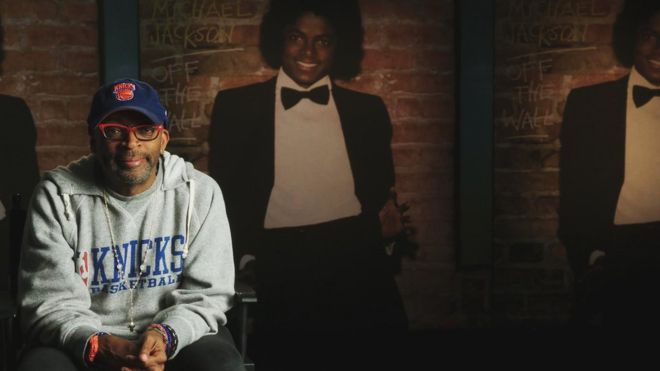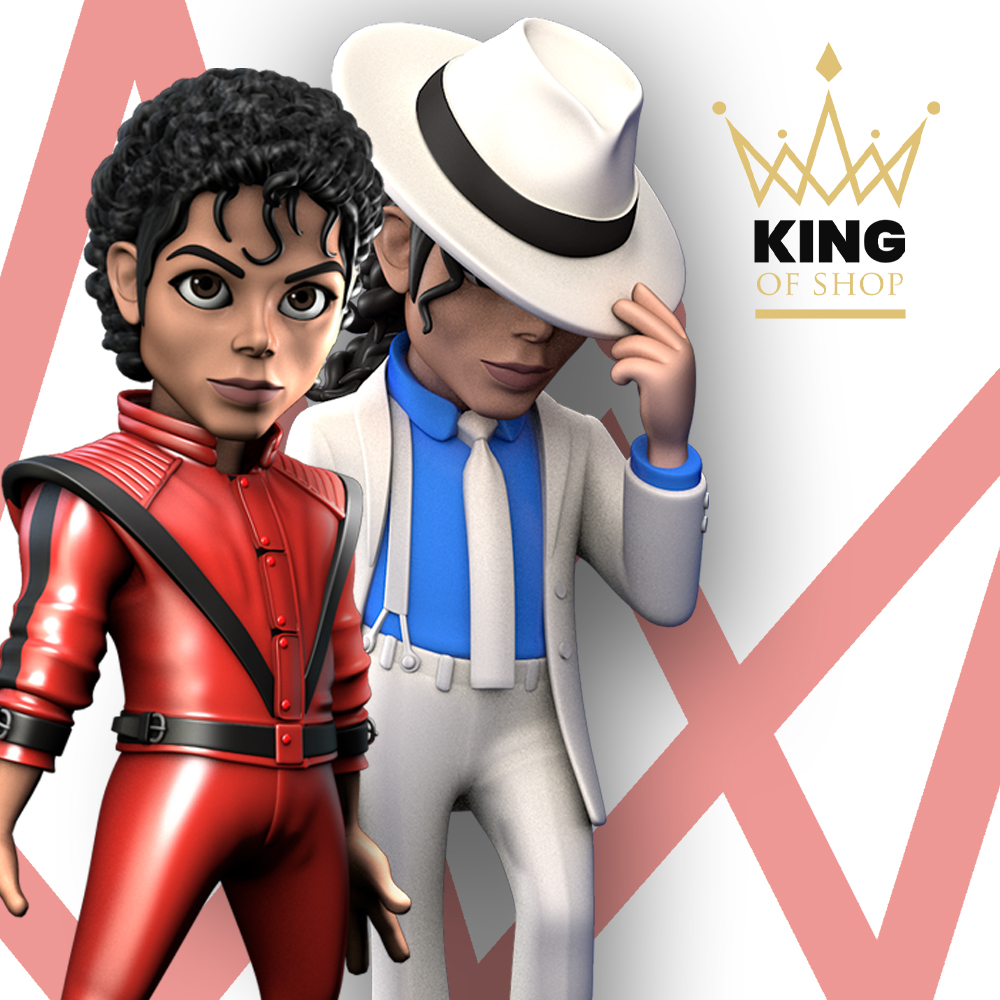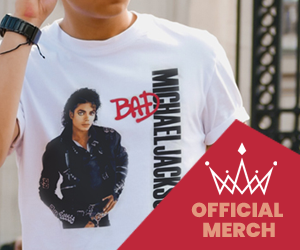INTERVIEW TAKEN FROM THE ROLLINGSTONE

There’s a moment about one-third of the way through Spike Lee’s new documentary Michael Jackson’s Journey From Motown to Off the Wall in which the Jackson estate’s archivist pulls out a yellowed, frayed letter and reads aloud. Written after Michael and his brothers, collectively known as the Jackson 5, had left Motown and were recording under the name the Jacksons, the future King of Pop is jotting down various aspirational goals: He wants to get into the movies, he wants to explore all musical styles and directions, he wants to be addressed from this point forward as “MJ.” And then, near the end of this free-form vision board in miniature, there’s a single sentence scrawled in the middle of the page: “I want to be the greatest entertainer of all time.”
Mention this letter to Lee, and the director will let loose one of those loud Spike laughs that echoes off the walls of the Sundance press room he’s sitting in. “For most people, that concept might not be an attainable. But I think it’s safe to say that Michael reached his goals and then some.” By the time Thriller had turned the Gary, Indiana native into a global moonwalking phenomenon in the early Eighties, Jackson was the biggest musical star in the world. Before that, however, he had to break free from notions that he was part of “cartoon” act, go off on his own and make a solo album that would turn out to be a major turning point in late Seventies pop.
Charting the boy-to-man arc that occurred between putting out singles like “ABC” and the release of his 1979 hit album Off the Wall, Journey shows exactly how that pimply-faced kid with the Afro and the angelic voice became the artist who’d record “Don’t Stop ‘Til You Get Enough,” “Working Day and Night,” “Rock With You” and “She’s Out of My Life.” And as did with Bad 25, which delved into Jackson’s 1987 album, Lee collects choice archival footage and testimonials from the singer’s collaborators, select family members, and public figures ranging from Pharrell Williams to Misty Copeland and Kobe Bryant to provide a 360-degree picture of how MJ made a classic. “We’re connecting the dots,” Lee says. “People have forgotten that, after all that other stuff, that Michael made great music. That’s a big part of why we made this movie. This is where it all really starts.”
Settling into a chair and staring out at the film festival hustle and bustle happening on the street below, Lee talked about Jackson’s ambitions in making that seminal work, what he wants to do if he gets the chance to tackle Thriller next and why MTV’s revisionist attitude about playing black artists back in the day has got to go.
https://www.youtube.com/watch?v=F54kIhEQ7p0
You remember hearing that album growing up?
Oh yeah, summer of 1979. I had finished Morehouse in May and was starting NYU’s graduate film school in September, but I was lucky enough to get an eight-week internship at Columbia Pictures between the two. So I was in Los Angeles when the album came out, and I mean, I’d hear it everywhere I’d go.
When you listen to this album now, what do you hear?
I still hear something that sounds like it was made yesterday. It doesn’t sound like a late-Seventies album; it still sounds fresh and innovative. I hear a lot of what’s in music today, being worked out and recorded 35 years ago. Pharrell says it in the film: My music is directly influenced by this man and this album. Justin Timberlake says it! The Weeknd says it! You can hear a lot of Off the Wall in recent stuff.
How did you pick folks to speak about Michael for the film? Folks like Pharrell and Questlove are no-brainers; Kobe Bryant showing up was a bit of a surprise.
It proves that Michael’s influence was everywhere, not just in music but with athletes too. Game respects game! [Laughs]
“I’m telling you know, if I do end up doing [Thriller], I’m going after MTV. I’m sticking both my Air Jordans up their ass, believe me!”
When you started combing through the archives …
I don’t want to talk about what we find, you’re going to give all our secrets away! People gotta watch to find out.
But we can talk about that incredible letter you found, yes?
Oh yeah, the letter that he writes that says he’s wants to become the greatest entertainer of all time! He’s already visualizing what he wants to do, who he wants to become … how’s he going to get to that point so he can become that person. You can see he had a blueprint, he had a plan even when he was young. It was not haphazard. It was not an accident. This shit was planned! Let’s be clear about one thing, though: He made that shit happen. There was no hocus pocus, abracadbra going on here; he worked his ass off to get to that level.
Why do think he was so driven and such a perfectionist? Do you think that came from coming out of the Motown factory of hit makers?
There were a lot of factors that played into it, I think. He had a strong work ethic, which he got from his dad — the man got up every morning and went to a steel mill to put food on the table for his 11 kids. And then he saw firsthand, when his dad worked all his sons and rehearsed them night and day, ran them through their steps, how hard work could pay off. Same with Berry Gordy and the Motown work ethic. But you gotta remember, he got to see some of the greatest artists of the day at work up close and personal: Stevie Wonder, Marvin Gaye, the Temptations, Diana Ross. Then he gets to go on the road and he’s standing in the wings at the Howard Theater, the Apollo Theater, and watching James Brown and Jackie Wilson perform. He saw all that firsthand. The kid was a human sponge!
And when you fill in the gaps between “ABC” and Off the Wall, you see how he he took all of those influences and just synthesized them when he went solo.
That’s what we’re trying to do: connect the dots. “The Journey from Motown to Off the Wall” — we called it that for a reason.
It’s funny to hear people in the documentary saying that they didn’t think Quincy Jones would be the right person to produce the album — that he was too square and “jazzy.”
As [songwriter] Kenny Gamble says in the movie, “A&R people … they don’t know!” [Laughs] There were people there that did not want him to make that album and thought he was the wrong fit — that’s a fact. But what’s funny is, after he made the album, absolutely no one was saying that! Then it was, hey Quincy, can you give us more of that Off the Wall sound? They worked well together, he and Michael. Three great albums, man.
Some Jackson family members are conspicuous by their absence — were they opposed to you making this movie?
There are just some issues between the estate and the family … that’s the bottom line. Everyone was invited, and those who participated came on board. It really was as simple as that.
You worked with Michael in the 1990s, right?
In 1996, yeah — the “They Don’t Care About Us” videos, off the HIStory album. We did two of them, actually: We did the prison version and then we went to Brazil and did a version there. He was really wonderful to work with; these were some of the best times I’ve ever had on a set. It wasn’t like were best friends or anything, and I never saw him after we did those videos. But it was a great experience. He knew what he was doing.
You’ve said you can still see a lot of joy in Michael as he’s working these songs out. Is it hard to watch some of this footage and not think about everything that comes after?
It’s not hard for me; maybe it’s hard for you, but not for me! No disrespect, but we’re concentrating on a very specific period of his life. I’m not looking forward, I’m looking back. The whole point of the documentary, to me, was to just deal with the music, and not all that other stuff. I want to remind people that he made this incredible music, and tell them how he got there. I got to do it with Bad, I got to do it with Off the Wall — and hopefully, I’ll get to do it with Thriller!
So are you going to do a doc on Thriller?
That’s what I want to do. That’s the plan. I’ve gone on record as saying I’ll do it in a second. It’s just not all up to me.
There’s a lot of rich material to work with — not just the music, but the way that album blew up, the Grammys appearance, the way he broke the color barrier on MTV…
I’m telling you know, if I do end up doing it, I’m going after MTV. I’m sticking both my Air Jordans up their ass, believe me! [Laughs] I wanna clear up the bullshit revisionist history that’s being spread around right now.
What revisionist history, exactly?
That there was no opposition to anyone at MTV playing Michael’s music. Have you seen that David Bowie clip that just resurfaced? No, seriously, have you seen it?
I have, yeah. It’s amazing.
He’s telling the truth. It’s not Spike Lee saying “MTV doesn’t play black people,” it’s David Bowie saying this! Listen to what that guy who’s interviewing him is saying, about having a certain demographic and what will play in America, all that. He’s just mouthing the party line; those were there talking points of the whole company. All those motherfuckers are full of shit, saying that they opened Michael’s videos with open arms!
Who’s still saying that? It’s pretty much an established fact now that they didn’t want to play his videos, or videos by any black artists, at first … are people still disputing that story?
They’re still saying they welcomed Michael Jackson with opens arms, yes, and it’s bullshit! We have that moment in the Bad doc: [CBS Records CEO] Walter Yetnikoff called up the head of MTV at the time and told him “I’m taking every CBS artist off MTV unless you play this.” What’s the guy’s name? It’s Robert something. Google that shit right now. I’ll wait.
SOURCE: The RollingStone



